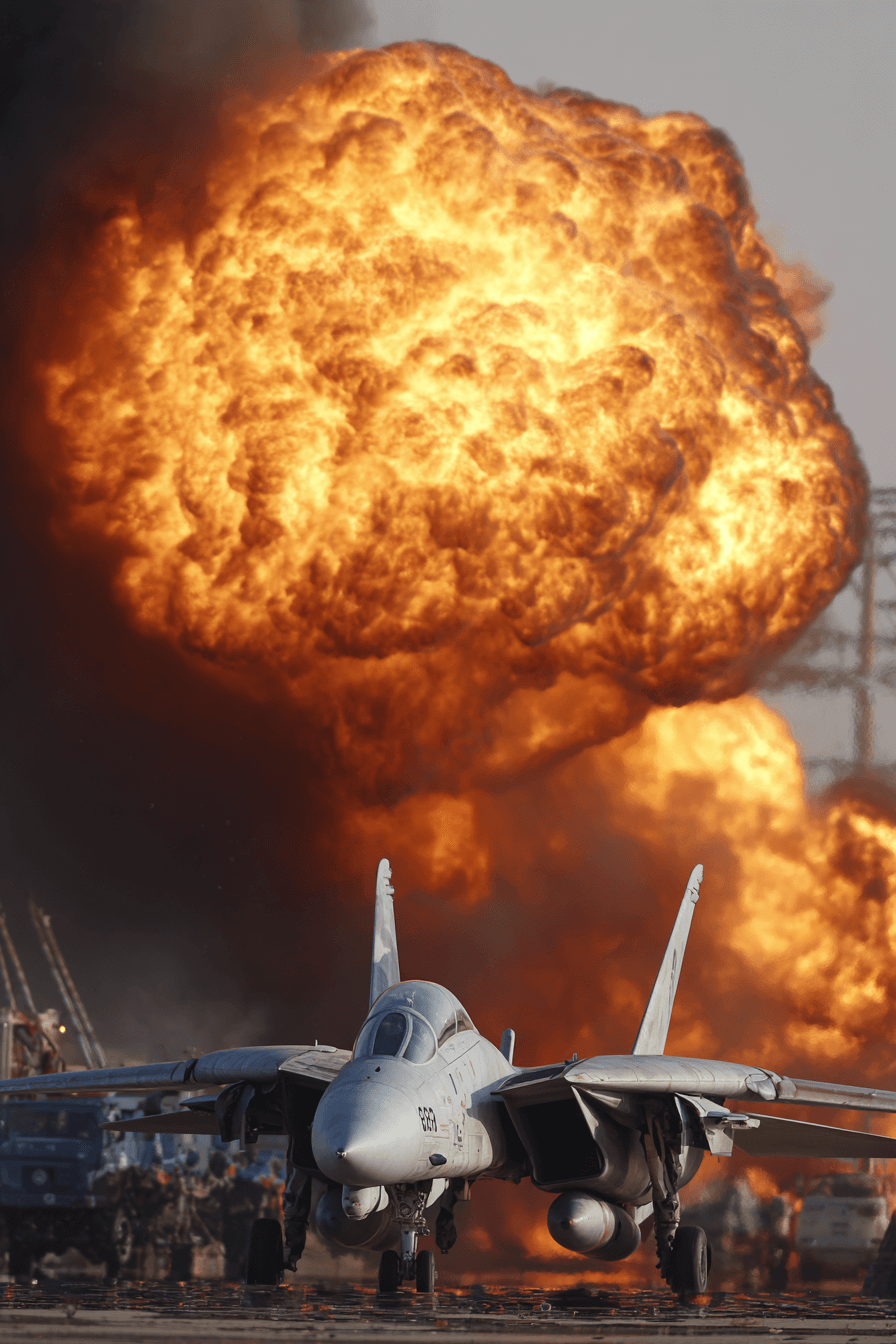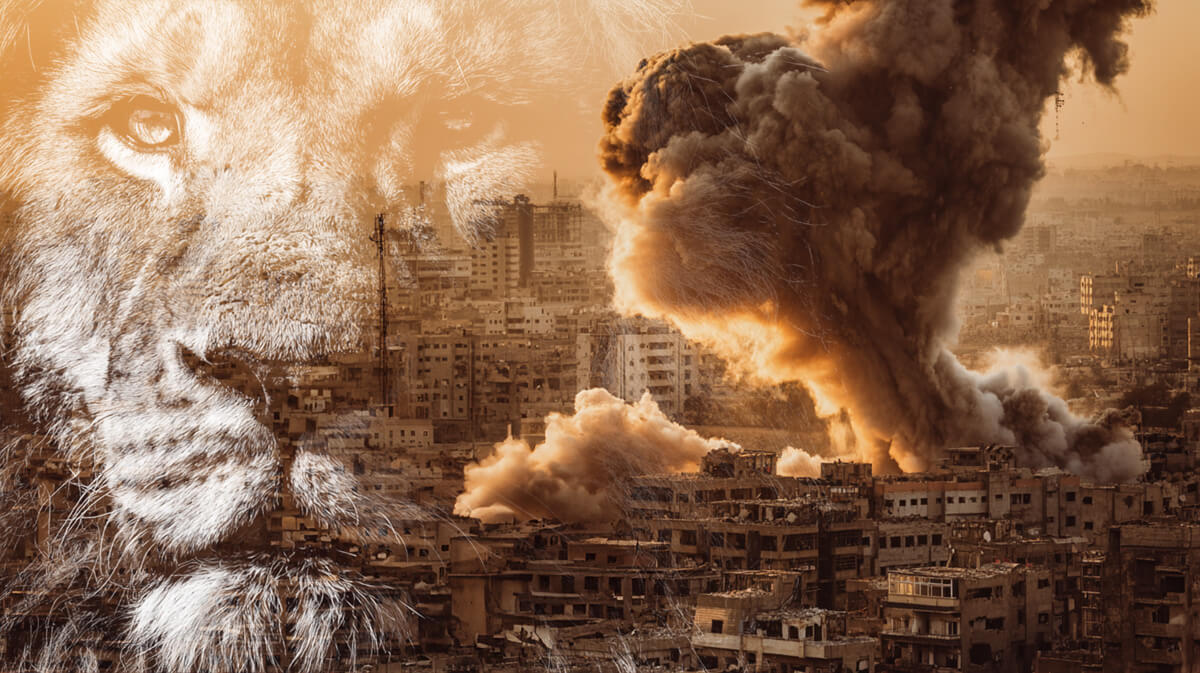
Israel has launched its most significant military operation against Iran in decades, conducting massive strikes on nuclear facilities and eliminating Iran's top military leadership in what Israeli Prime Minister Benjamin Netanyahu called "Operation Rising Lion." The unprecedented attack has killed several senior Iranian commanders and nuclear scientists while targeting the heart of Tehran's nuclear program, dramatically escalating Middle East tensions as Iran vows severe retaliation.
Operation Details and Scope
Israeli Defense Forces launched the operation in the early morning hours of Friday, June 13, 2025, with over 200 aircraft conducting coordinated strikes across multiple waves. The IDF confirmed hitting more than 200 targets using over 330 munitions, marking the largest attack on Iran since the Iran-Iraq War.
"This operation will continue for as many days as it takes to remove" what Netanyahu described as "a clear and present danger to Israel's very survival." The Israeli leader emphasized that Iran could "produce a nuclear weapon in a very short time. It could be a year. It could be within a few months, less than a year."
The strikes targeted multiple critical locations, including Iran's main uranium enrichment facility at Natanz, with later waves hitting the Fordow facility near the holy city of Qom. Israeli military spokesman Brigadier General Effie Defrin confirmed that Israel had "destroyed a structure at Isfahan for producing uranium, laboratories and infrastructure for converting enriched uranium."
High-Value Targets Eliminated
The operation achieved devastating results against Iran's military leadership structure. Iranian state media confirmed the deaths of several top commanders, including:
- Major General Hossein Salami, head of Iran's Islamic Revolutionary Guard Corps (IRGC)
- Major General Mohammad Bagheri, Iran's army chief of staff
- Major General Gholamali Rashid, commander of the Khatam al-Anbia joint forces headquarters
The strikes also eliminated at least six to nine nuclear scientists, according to IDF statements, including Fereydoun Abbasi, who headed Iran's Atomic Energy Organization from 2011 to 2013. Israeli officials stated they had "wiped out the entire top echelon of military commanders" and killed "most of the senior leadership of the IRGC's air force."
Operational Complexity and Intelligence Success
The operation demonstrated sophisticated planning and intelligence penetration. According to Israeli sources, Mossad had established a covert drone base near Tehran, which was used to strike missile launchers as part of the coordinated assault. The mission involved "smuggling precision weapons into Iran and deploying Mossad commandos to disable air defenses, securing air superiority for Israeli aircraft."
Israeli F-35I Adir stealth fighters operated without radar reflectors, maintaining their stealth capabilities throughout the mission. The multi-wave attack targeted not only military installations and nuclear facilities but also the private residences of senior officials, indicating detailed intelligence on leadership locations.
Trump's Response and Diplomatic Pressure
President Donald Trump issued stark warnings to Iran following the strikes, urging Tehran to accept a nuclear deal to prevent even more devastating attacks. "I gave Iran chance after chance to make a deal," Trump posted on Truth Social. "There has already been great death and destruction, but there is still time to make this slaughter, with the next already planned attacks being even more brutal, come to an end."
Trump's statement revealed that additional Israeli strikes are already planned and warned they would be "even more brutal" than the opening attacks. "Iran must make a deal, before there is nothing left, and save what was once known as the Iranian Empire," the president declared.
The administration emphasized that the United States was not involved in the strikes. Secretary of State Marco Rubio stated that "Israel took unilateral action against Iran. We are not involved in strikes against Iran and our top priority is protecting American forces in the region."
Iran's Response and Regional Escalation
Iran immediately condemned the strikes as a "declaration of war" and launched its initial retaliation. The IDF confirmed that Iran had launched "approximately 100 UAVs towards Israeli territory," though Israeli forces successfully intercepted the drone swarm. Iran's Supreme Leader Ayatollah Ali Khamenei promised "severe punishment" for the attacks, warning that Israel "has prepared for itself a bitter, painful fate."
Iranian Foreign Minister Abbas Araghchi formally notified the United Nations that Iran considers the attacks an act of war, while Iranian officials declared that "the gates of hell will open" in retaliation. Revolutionary Guard commanders stated they had already determined targets for counter-strikes.
The Iranian public response reflected both fear and defiance. Marziyeh, a 39-year-old resident of Natanz, told Reuters: "People on my street rushed out of their homes in panic, we were all terrified" after being awakened by explosions. Reports indicated Iranians were rushing to gas stations and seeking ways to leave the country.
Israeli Defensive Preparations
Recognizing the inevitability of Iranian retaliation, Israel has implemented comprehensive defensive measures. The Home Front Command instructed all Israeli citizens to "remain close to protected spaces" and avoid large gatherings nationwide. Warning sirens have been activated across the country in preparation for potential missile and drone attacks.
Israeli Defense Minister Israel Katz declared a nationwide state of emergency, warning of "imminent missile and drone retaliation." Hospitals have begun moving patients to designated shelter areas, while Ben Gurion Airport showed dramatically reduced activity as the country prepared for potential escalation.
The IDF has mobilized "tens of thousands of soldiers and is preparing across all borders," according to Chief of Staff Eyal Zamir, who warned that "anyone who tries to challenge us will pay a heavy price."
Nuclear Program Assessment and Strategic Implications
The strikes targeted the core infrastructure of Iran's nuclear program, which had been advancing rapidly toward weapons capability. Iran has been enriching uranium to 60 percent purity, approaching the 90 percent threshold needed for weapons-grade material. Intelligence assessments suggested Iran could produce enough weapons-grade uranium for one nuclear bomb within a week and accumulate enough for seven within a month.
Israeli security adviser Tzachi Hanegbi acknowledged that military force alone cannot completely destroy Iran's nuclear program, stating the campaign could "create the conditions for a long-term deal, led by the United States, that will completely thwart the nuclear programme."
The targeting of nuclear scientists represents a significant setback to Iran's technical capabilities, continuing a pattern of Israeli operations against the program's human infrastructure. The elimination of key figures like Abbasi, who had extensive knowledge of Iran's enrichment processes, could delay program advancement.
International Reactions and Regional Impact
The international community expressed deep concern about the escalation's potential for broader regional conflict. German Chancellor Friedrich Merz called on both sides to "refrain from steps that could lead to further escalation and destabilize the entire region," while offering German diplomatic assistance.
The strikes effectively ended the diplomatic track that had been proceeding through US-Iran talks mediated by Oman. The sixth round of nuclear negotiations scheduled for Sunday was cancelled as Iran withdrew from the process, declaring negotiations impossible under military pressure.
Regional implications extend beyond the immediate Israel-Iran confrontation. Jordan confirmed that Iranian drones had entered its airspace during retaliation attempts, while reports emerged of strikes affecting Syrian territory. The involvement of Iran's proxy network across the region remains a major concern for escalation.
Ongoing Military Operations
As evening fell Friday, Israeli operations continued with renewed attacks. Iranian media reported explosions on the northern and southern outskirts of Tehran and at the Fordow nuclear facility, indicating Israel was expanding its target set to include previously untouched sites.
The Israeli military confirmed it was conducting additional strikes against "Iranian missile and drone launching sites," suggesting a systematic campaign to degrade Iran's retaliatory capabilities. Netanyahu emphasized that operations would continue "for as long as necessary to complete the task of fending off the threat of annihilation against us."
Military analysts noted that even with massive firepower, the strikes would likely only temporarily set back Iran's nuclear program rather than permanently eliminating it. However, the combination of infrastructure damage and leadership elimination could create a more significant delay than previous assessments suggested.
Strategic Calculations and Future Scenarios
The operation represents a fundamental shift in the Israel-Iran conflict from covert operations and proxy warfare to direct, large-scale military confrontation. Netanyahu's decision to proceed despite US preferences for diplomacy indicates Israeli assessment that the nuclear threat had reached an unacceptable level.
The timing coincided with Iran's weakened position following Israeli strikes on its missile production facilities and air defenses in October 2024, combined with economic pressure from ongoing sanctions. Israeli planners appear to have calculated that Iran's diminished defensive capabilities created an optimal window for decisive action.
Trump's warning of "even more brutal" planned attacks suggests a sustained campaign designed to compel Iranian capitulation rather than mere tactical strikes. The president's emphasis on Iran accepting a deal "before there is nothing left" indicates the administration views military pressure as supporting diplomatic objectives.
Regional War Risks and Containment Efforts
The scale and intensity of the conflict raise serious concerns about regional war. Iran's proxy network, including Hezbollah in Lebanon, the Houthis in Yemen, and various militia groups in Iraq and Syria, could activate in support of Tehran, potentially opening multiple fronts against Israel.
The United States faces the challenge of supporting Israeli security while preventing broader escalation that could threaten American forces stationed throughout the region. The evacuation of non-essential personnel from US diplomatic missions and military bases reflects recognition of this risk.
Oil markets and global economic implications add urgency to containment efforts. Any disruption to Persian Gulf energy supplies could trigger economic consequences extending far beyond the Middle East, potentially affecting Trump's domestic political standing.
Historical Context and Precedent
The operation surpasses previous Israeli strikes against regional adversaries in scope and strategic ambition. While Israel has conducted targeted assassinations and limited strikes against Iranian facilities, Operation Rising Lion represents the first comprehensive attempt to simultaneously degrade both Iran's nuclear program and military command structure.
The systematic targeting of leadership echoes Israeli operations against Palestinian militant organizations but applied at a state level against a regional power. The integration of Mossad intelligence operations with large-scale military strikes demonstrates the evolution of Israeli operational capabilities.
The naming of the operation as "Rising Lion" suggests Israeli intention to project strength and determination, contrasting with previous operations that maintained ambiguity about Israeli involvement. The open acknowledgment and detailed briefings indicate confidence in Israel's position and possibly an attempt to deter Iranian escalation through demonstration of capabilities.
Looking Forward: Critical Junctures
The next 24-48 hours will likely determine whether the conflict escalates to full regional war or stabilizes through mutual deterrence. Iran's response will signal whether Tehran chooses measured retaliation similar to previous exchanges or escalates to a level that triggers additional Israeli operations.
Trump's diplomatic intervention, threatening even more devastating attacks while offering a negotiated resolution, creates potential off-ramps if Iran chooses to engage. However, the elimination of Iran's top military leadership may complicate decision-making in Tehran and potentially favor hardline responses.
The international community's ability to facilitate de-escalation faces severe challenges given the complete breakdown of the diplomatic track and the high stakes involved for both sides. The involvement of regional powers and proxy forces could create escalation dynamics beyond the control of the primary antagonists.
The success or failure of Operation Rising Lion in achieving its objectives will likely determine the future trajectory of Middle East security architecture and the viability of diplomatic solutions to nuclear proliferation challenges in the region.
Sources: Reuters, The Guardian, New York Times, Washington Post, CNN, Times of Israel, Fox News, TIME Magazine, Associated Press, BBC, Israeli Defense Forces official statements, and verified social media posts from government officials.






